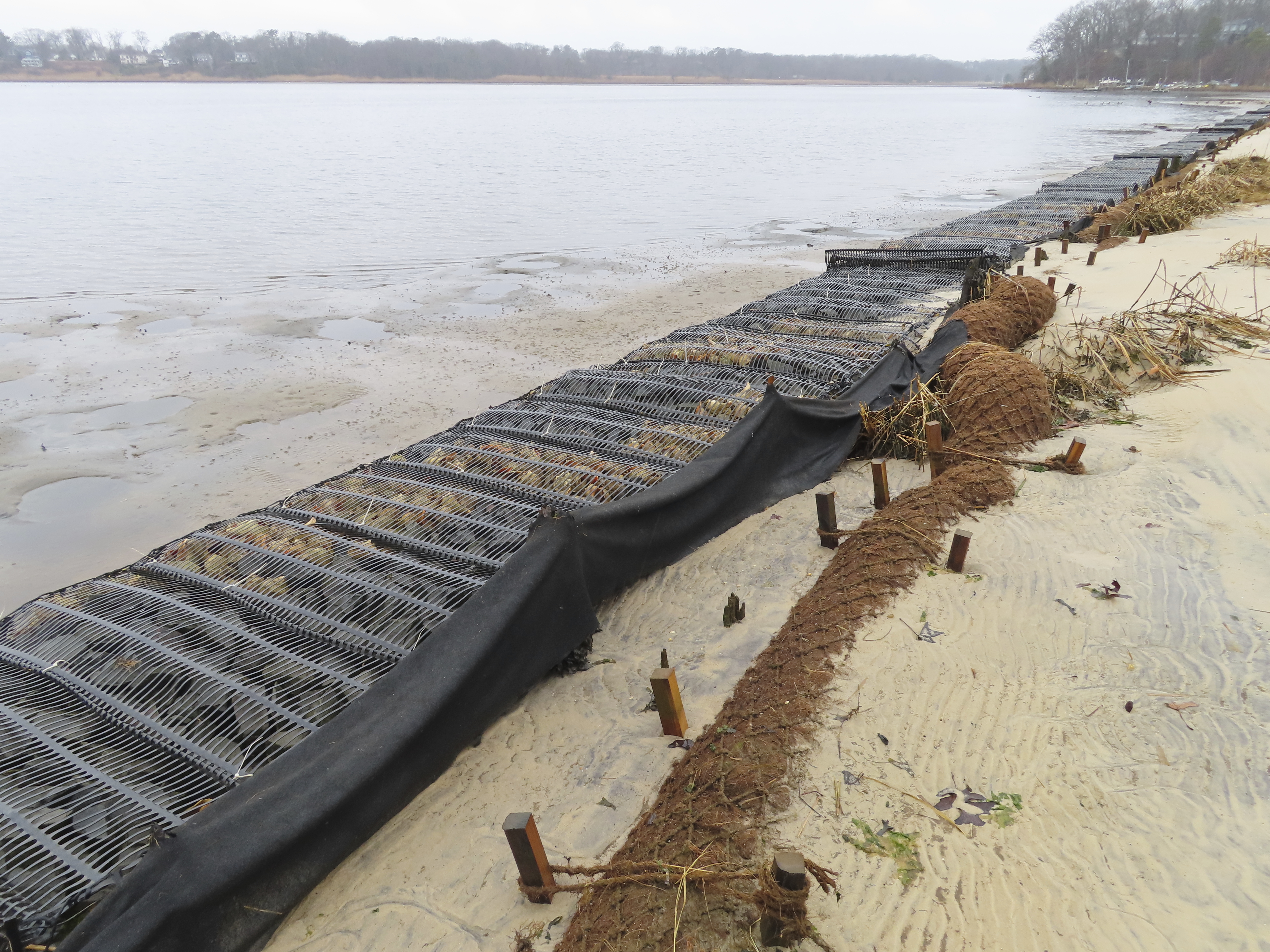Coconuts are becoming an important part of protecting global shorelines


A free daily email with the biggest news stories of the day – and the best features from TheWeek.com
You are now subscribed
Your newsletter sign-up was successful
Coconuts are increasingly being used around the world as part of efforts to keep shorelines from eroding.
Strands of coconut husk, known as coir, can be spun into mats or logs that are flexible and able to be molded on uneven areas of shoreline. As The Associated Press explains, the coir biodegrades over time, "but before it does, it is sometimes pre-seeded with shoreline plants and grasses." The mats and logs hold the plants in place so they can take root, and once the coconut-based materials break down, it leaves "the established plants and sediment around them in place to stabilize the shoreline." Because coconut is readily available around the world, this can be a cost-effective and sustainable alternative to barriers made of wood, steel, or concrete.
The American Littoral Society, a coastal conservation group, is using coir as part of a $1.3 million restoration project of an eroded river bank in Neptune, New Jersey. The organization said the project has "already added significantly" to the shoreline, which was hit hard by Superstorm Sandy in 2012. "We're always trying to reduce wave energy while shielding the shoreline, and whenever we can, we like to employ nature-based solutions," American Littoral Society Executive Director Tim Dillingham told AP, adding that it is "relatively inexpensive compared with harder materials."
The Week
Escape your echo chamber. Get the facts behind the news, plus analysis from multiple perspectives.

Sign up for The Week's Free Newsletters
From our morning news briefing to a weekly Good News Newsletter, get the best of The Week delivered directly to your inbox.
From our morning news briefing to a weekly Good News Newsletter, get the best of The Week delivered directly to your inbox.
In Boston, a pilot program is now underway with four floating mats made of coconut fibers, wood chips, and other material being tested to see if they can blunt the force of waves and spur the growth of aquatic vegetation. Julia Hopkins, an assistant professor at Northeastern University, told AP this could easily grow to a network of thousands of mats able to protect large swathes of land. "Coconut fiber is organic material, it's relatively cheap and it's a discard," she said. "It's actually recycling something that was going to be discarded." Learn more about how coconut-based materials work — and where they don't — at The Associated Press.
A free daily email with the biggest news stories of the day – and the best features from TheWeek.com
Catherine Garcia has worked as a senior writer at The Week since 2014. Her writing and reporting have appeared in Entertainment Weekly, The New York Times, Wirecutter, NBC News and "The Book of Jezebel," among others. She's a graduate of the University of Redlands and the Columbia University Graduate School of Journalism.
-
 American universities are losing ground to their foreign counterparts
American universities are losing ground to their foreign counterpartsThe Explainer While Harvard is still near the top, other colleges have slipped
-
 How to navigate dating apps to find ‘the one’
How to navigate dating apps to find ‘the one’The Week Recommends Put an end to endless swiping and make real romantic connections
-
 Elon Musk’s pivot from Mars to the moon
Elon Musk’s pivot from Mars to the moonIn the Spotlight SpaceX shifts focus with IPO approaching
-
 Blue Origin launches Mars probes in NASA debut
Blue Origin launches Mars probes in NASA debutSpeed Read The New Glenn rocket is carrying small twin spacecraft toward Mars as part of NASA’s Escapade mission
-
 Dinosaurs were thriving before asteroid, study finds
Dinosaurs were thriving before asteroid, study findsSpeed Read The dinosaurs would not have gone extinct if not for the asteroid
-
 SpaceX breaks Starship losing streak in 10th test
SpaceX breaks Starship losing streak in 10th testspeed read The Starship rocket's test flight was largely successful, deploying eight dummy satellites during its hour in space
-
 Rabbits with 'horns' sighted across Colorado
Rabbits with 'horns' sighted across Coloradospeed read These creatures are infected with the 'mostly harmless' Shope papilloma virus
-
 Lithium shows promise in Alzheimer's study
Lithium shows promise in Alzheimer's studySpeed Read Potential new treatments could use small amounts of the common metal
-
 Scientists discover cause of massive sea star die-off
Scientists discover cause of massive sea star die-offSpeed Read A bacteria related to cholera has been found responsible for the deaths of more than 5 billion sea stars
-
 'Thriving' ecosystem found 30,000 feet undersea
'Thriving' ecosystem found 30,000 feet underseaSpeed Read Researchers discovered communities of creatures living in frigid, pitch-black waters under high pressure
-
 New York plans first nuclear plant in 36 years
New York plans first nuclear plant in 36 yearsSpeed Read The plant, to be constructed somewhere in upstate New York, will produce enough energy to power a million homes
